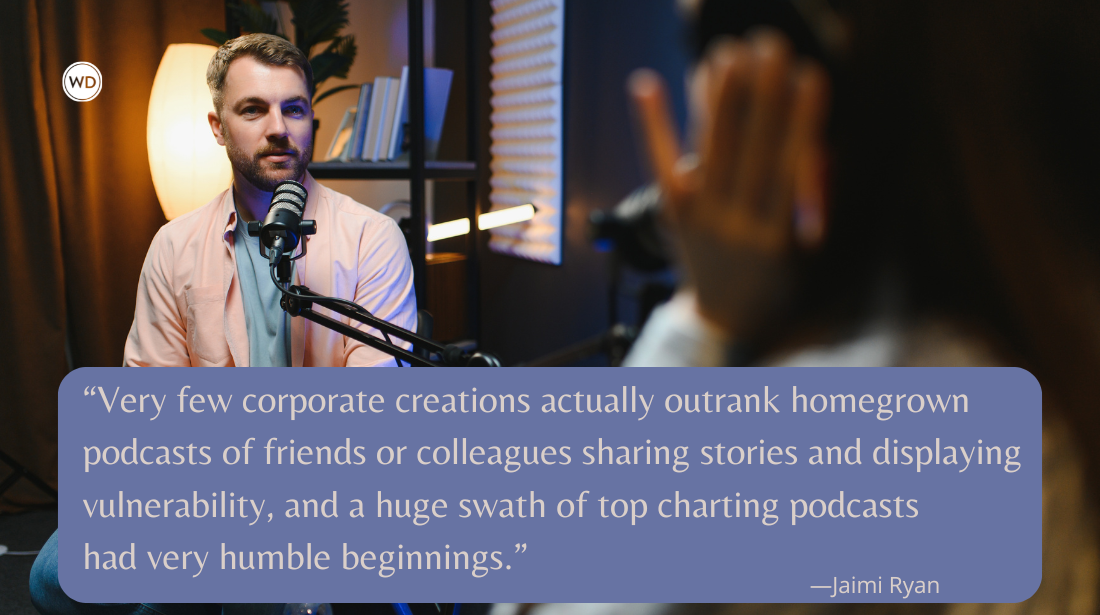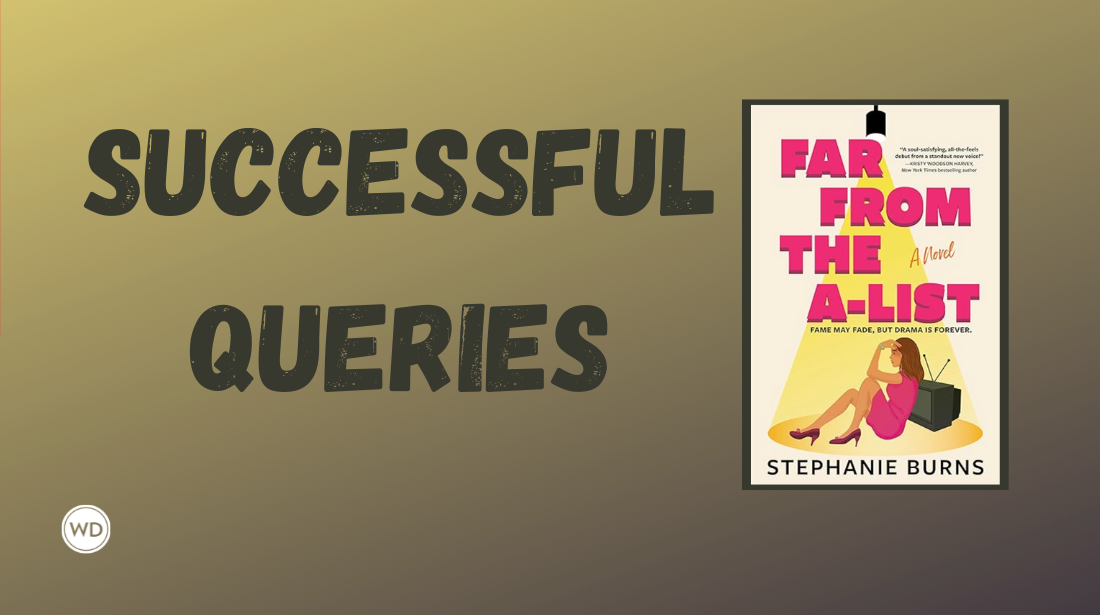How to Publish Your Science Fiction Novel
Each genre of fiction has its own rules for getting published. In this article, we cover how to publish your science fiction novel, including successful queries and synopses as well as literary agents and book publishers open to science fiction submissions.
Writing a novel is hard to do. It takes skill, hard work, and perseverance. Once you've finished, it's natural to start thinking about the next step—publication!
In this post, I'm going to share how to get your science fiction novel published. We'll look at example query letters and synopses that were effective specifically for science fiction novelists. I'll also share lists of literary agents and book publishers that are open to writer submissions.
The first step is finishing your manuscript. Notice that I didn't say the first step is writing your manuscript. That's because editors and agents expect writers to submit edited and revised manuscripts. Once your manuscript is finished, it's time to start working on your query letter.
How to Write a Science Fiction Query Letter
All query letters, regardless of genre, share one goal: To get the editor or agent to want to know more about your project. This is not accomplished by being intentionally vague and abstract. Rather, you'll want your query to be specific and concrete.
Here are the essential elements of writing an effective query letter:
- Sentence that lays out what you're pitching. This sentence should include the full title of your novel, genre (or sub-genre), and word count. A completely made-up example would be: The Boy Who Rides Horses is a 120,000-word science fiction novel.
- Hook. The hook is a sentence or two that gets the agent or editor to want to know more about the story you're telling. Both the hook and sentence that lays out what you're pitching are typically included in the first paragraph, though the order can be switched.
- Supporting story. If you've piqued interest after the first paragraph, the second (and possibly third) paragraph's job is to reveal more about your story that will heighten that interest—hopefully resulting in a request for sample chapters or a full manuscript.
- About you. Your final paragraph should be a line or three about you and your relevant writing accomplishments in relation to your novel. Don't inflate if you don't have much to tell. A simple, "This is my debut novel," will suffice.
*****
In WD University's 12 Weeks to a First Draft, you will tackle the steps to writing a book, learn effective writing techniques, and of course, begin writing your first draft. Register today!
*****
Sample Science Fiction Query Letters That Worked
I love advice, but what really helps me is to see examples of how to accomplish goals. Below, I've shared a few query letters that worked for science fiction authors. Click the links to view the original queries and commentary from agents.
- Stefanie Gaither's Falls the Shadow, accepted by agent Sara Megibow. From Megibow: "I've been reading slush pile queries for 8 years and can honestly say this is one of the strongest queries I've ever read. I get an immediate sense of the world, the stakes, the characters and the conflict."
- Mindy McGinnis' Not a Drop to Drink, accepted by agent Adriann Ranta. From Ranta: "I love the punchy first line, the spare prose, and gradual introduction to all the book's main players."
- Nick James' Skyship Academy: The Pearl Wars, accepted by agent Jen Rofe. From Rofe: "Sci-fi has never been my 'thing.' ... Then I received a query for Skyship Academy: The Pearl Wars by Nick James."
How to Write a Science Fiction Synopsis
A novel synopsis is a summary of your novel. Various literary agents and book publishers may want synopses of varying lengths, so always check specific guidelines. But here are a few things to keep in mind when writing your own science fiction synopsis.
- Set up the world. For science fiction, it's usually a good practice to set up the world in which your story takes place. Don't go in depth here by describing technology, specialized languages, or new species—unless it ties into the main conflict of the story. If it's possible, try to accomplish this goal at the same time as the next one, which is to...
- Set up the protagonist's main desires and obstacles. For instance, your protagonist may be a young woman who needs (by the way, "needs" always trumps "wants" for raising the stakes of a story) a rare medicine to save her love interest. A few problems: She has to travel 500 miles to get the medicine, all mechanical devices (like cars and motorcycles) don't work, and robots have taken over the world and want to eliminate all humans.
- Share how the character changes during the story. Maybe our protagonist has a fear of making decisions and doing things on her own in the beginning of the story. Then, show how she is forced into situations in which she has to overcome these fears to achieve her goals. This is called developing a character's arc.
- Reveal the ending. A query doesn't have to reveal how a book ends, but your synopsis should. In fact, your novel synopsis should share how the book ends from a plot perspective and how it changes the main character, inside and out.
Sample Science Fiction Synopses
Here are a few example science fiction synopses written by Chuck Sambuchino, author of Create Your Writer Platform and Formatting & Submitting Your Manuscript, Third Edition. Click each link to read the synopsis and Sambuchino's full commentary.
- Sample synopsis for Robocop. From Sambuchino: "Notice how a lot of the action is stripped from this, and the character of Bob Morton is not even mentioned. You have to keep a synopsis moving. But as quickly as it moves, we must see the main character’s arc, and you can see (Alex) Murphy’s within this text below."
- Sample synopsis for The Fly. "The main thing with this synopsis was to streamline Seth’s transformation process (and I left a lot of details on the cutting room floor) so that it could be whittled it down to the proper length."
- Sample synopsis for Flight of the Navigator. "Concerning this synopsis, I cut all out mentions that Max’s home planet was called Phaelon. I cut all info about how the craft could fly at high speeds. I left in one little moment about the free fall, because I felt it showed David’s arc in taking control of the situation after starting as a guinea pig at NASA. I had to lose a lot of specifics about how Max got stuck on Earth and what exactly he did with David’s brain. You’re starting to see a pattern here—cut, combine, cut, combine, cut. Smooth and fast—that’s how a short synopsis has to look."
Finding a Literary Agent for Your Science Fiction Novel
Literary agents are important decision makers in the publishing process for authors who wish to be published by many of the big publishers. That's true for science fiction novels as well. Below I've included a link to a post where I've listed literary agents who are open to science fiction submissions.
Finding a Book Publisher for Your Science Fiction Novel
Not all book publishers require a literary agent for writers to submit their work. In fact, some book publishers prefer unagented submissions. That said, the process for submitting to a book publisher is often very similar to submitting to agents. For instance, writers should always double-check submission guidelines before submitting, because they can often change over time depending on their current needs and preferences.









